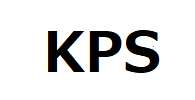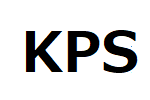Bookkeeping Basics: Best Beginner’s Guide for Businesses
Content
The best part is that you will not require any prior knowledge or an accounting degree to get started. If your business is a side project with a limited budget, you can probably get by going the DIY route. You might still consider consulting with a CPA or bookkeeper at the beginning, just to make sure youŌĆÖre doing everything right. But most businesses in the hobbyist stage can get by using either a simple spreadsheet or one of the many accounting or bookkeeping software solutions on the market. Mixing together personal and business expenses in the same account can also result in unnecessary stress when you need to file taxes or do your bookkeeping. It could mean a business expense gets lost in your personal account and you miss out on an important deduction.
- Do your homework to find out what software will best fit the needs of you and your business.
- And as simple as it may seem, implementing the wrong system for your business can cause challenges.
- A completed ledger is really nothing more than a summary of revenues, expenditures, and whatever else you’re keeping track of .
- ItŌĆÖs like driving a car without a fuel gauge or a mapŌĆösooner or later youŌĆÖre going to get lost or run out of gas.
Under cash accounting, you record transactions only once money has exchanged hands. If you bill a customer today, those dollars donŌĆÖt enter your ledger until the money hits your bank account. Enter your transactions into this Excel template, and voila! Perfect for small business owners who aren’t ready for full-fledged accounting software. If you wait until the end of the year to reconcile or get your financial transactions in order, you wonŌĆÖt know if you or your bank made a mistake until youŌĆÖre buried in paperwork at tax time. Regularly organizing and updating your books can help you catch that erroneous overdraft fee today, rather than six months from now, when itŌĆÖs too late to bring up.
Income Statement and Bookkeeping: Revenue, Expenses, and Costs
An example of an expense account is Salaries and Wages or Selling and Administrative expenses. Many or all of the products here are from our partners that compensate us. But our editorial integrity ensures our expertsŌĆÖ opinions arenŌĆÖt influenced by compensation. What side of an accounts payable T account does normal balance go? Enter your email to receive updates, FREE ebooks and extra tips you wonŌĆÖt get anywhere else on the internet. If youŌĆÖre driving long distances for meetings, then you can keep track of your mileage and log how far youŌĆÖve travelled and the costs that go with it.
How do I learn basic bookkeeping?
Use a Bookkeeping App: The best way to learn is to get hands-on in your own time and use a bookkeeping app that's both easy to use and understand. No formal degrees, no qualifications. Just look for one that has useful features you'll need and not packed full of ones you'll probably never use.
This means that you should always seek professional advice for your specific circumstances. You can also search for professionals or bookkeeping services online. How to find the best virtual bookkeeping service can help you get the process started.
Small-Business Bookkeeping Basics
Summarizing the flow of money in each account creates a picture of your companyŌĆÖs financial health. You can then use that picture to make decisions about your businessŌĆÖs future. If you’re searching for accounting software that’s user-friendly, full of smart features, and scales with your business, Quickbooks is a great option. No matter how you feel about bookkeeping, itŌĆÖs one of those tasks no business owner can avoid forever. Read these ten tips to make small business bookkeeping easier. Payroll Expenses.For many businesses, payroll expenses can be the biggest cost of all.
As the name suggests, this account tracks all the revenue your business makes from sales. Recording and maintaining an accurate sales account will help you understand where your business is currently standing. This account tracks the amount you into your business as its owner, minus any liabilities. (Liabilities are essentially claims in which you owe lenders and other vendors.) This is also known as “net assets." If bookkeeping keeps getting pushed aside as your business starts growing and you simply canŌĆÖt find the time to get your books in order every month, you should consider hiring a professional to help you.
Create a New Business Account
Some use the traditional method of pencil and paper, while some opt for computer-based records. There are no hard and fast rules regarding the type of recording option to use. However, if you have lots of transactions, it’s best to employ the use of a computer to ensure accuracy and prevent loss of record.
- All financial products, shopping products and services are presented without warranty.
- In just 5 minutes, we’ll get to know you and the kind of help you’re looking for.
- Costs, also known as the cost of goods sold, is all the money a business spends to buy or manufacture the goods or services it sells to its customers.
- Equity is the investment a business owner, and any other investors, have in the firm.
- Generally speaking, accrual accounting is better for larger, more established businesses.

